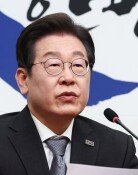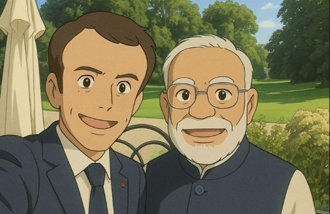Rohs Dialogue Targets Social Issues
On March 23, President Roh Moo-hyun had a dialogue with the public on the Internet, which was broadcast live on five Internet portals, including Daum. Questioned about follow-up measures for his August 31 real estate policy, Roh said that the government is preparing its third real estate policy package, which would include measures to recapture excess gains from reconstruction.
Roh also added that if these measures were well implemented over his remaining tenure of two years, it would be possible to see supplementary fourth and fifth real estate policies from the government.
Kim Man-soo, a spokesperson for Cheong Wa Dae, said, The government is reviewing methods to retrieve excess gains from reconstruction in an attempt to rationalize rules and regulations on real estate. He explained, The president did not mean to retrieve all the gains, just some of them.
In the dialogue, Roh pointed to the real estate gap as the main culprit behind Koreas asset bipolarization, and said a bursting of the real estate market bubble would trigger an economic crisis, that the accompanying burden would be borne by ordinary people, and that the real estate issue is the root cause of all of Koreas social ills.
When questioned about a possible tax increase for resolving the bipolarization problem, Roh said, I did not mean to raise taxes yet, but it is not a bad idea. He added, Even if the government raises taxes, in the case of income tax, the top 20 percent pay 90 percent of the tax, so the other 80 percent have nothing to lose.
On the education issue, Roh bluntly said, Reinstating university-administered entrance exams is an attempt to rank the public according to their academic performance, which I think unnecessary. He also said, As public education is a key instrument for educating creativity and social skills, in order to save public education, the college entrance admission system should be based on high school academic reports.
As to the screen quota, a pressing matter to Koreas filmmaking industry, Roh reaffirmed his government plan to reduce the quota, saying, When we had little confidence, we had to protect ourselves, but our movie industry has enough capacity to open up its market to foreign competition.
On the selection of a new prime minister, he said, I have not decided yet, and I think the selection needs consideration on many fronts.
As to the questions raised over the ideological nature of his government, Roh said, The most important task for us is to do whats needed to keep our economy strong and promote the unity of our society, whether through leftist or rightist policies. In this respect, I would call my government a leftist neo-liberal government.
Yeon-Wook Jung jyw11@donga.com
Headline News
- Yoon removed from office by unanimous court decision
- Constitutional Court mentions responsibility of both Yoon and National Assembly
- Won-dollar rate falls to 1,430 range after impeachment ruling
- Teacher with spinal cord injury transforms into career counselor
- U.S. redeploys Patriot missiles from S. Korea without replacement forces







